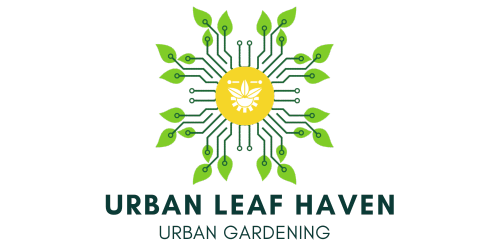In an urban garden, preventing soil contamination is crucial for the health and productivity of your plants. By implementing a few simple practices, you can ensure that your soil remains clean, nutrient-rich, and free from harmful pollutants. From testing your soil before planting to using organic fertilizers and practicing proper waste disposal, this article will guide you through the steps to maintain a healthy and thriving urban garden. So let’s explore practical ways to prevent soil contamination and create an environment where your garden can flourish.

Understanding Soil Contamination
What is soil contamination?
Soil contamination refers to the presence of pollutants or harmful substances in the soil that can adversely affect plant growth, human health, and the overall ecosystem. These contaminants can come from various sources such as industrial activities, agricultural practices, improper waste disposal, and chemical spills. Understanding soil contamination is crucial for maintaining a healthy and productive urban garden.
Causes of soil contamination
There are numerous causes of soil contamination. Industrial activities, such as factories and manufacturing plants, often release toxic chemicals and heavy metals into the soil through improper waste disposal or accidents. Agricultural practices, including the use of chemical fertilizers, pesticides, and herbicides, can also contribute to soil contamination. Additionally, improper waste management, such as the disposal of hazardous materials and improper handling of green waste and kitchen scraps, can introduce contaminants into the soil.
Effects of soil contamination
Soil contamination can have severe consequences for both the environment and human health. Contaminants in the soil can leach into groundwater, leading to the pollution of drinking water sources. They can also be taken up by plants, which can then enter the human food chain, potentially causing health issues. Soil contamination can also harm soil fertility, reducing crop yields and overall plant growth. Moreover, it can negatively impact the biodiversity of a garden, as certain organisms may be unable to survive in contaminated soil.
Testing and Monitoring Soil Health
Importance of regular soil testing
Regular soil testing is essential for maintaining the health of your urban garden. Soil testing helps determine the pH level, nutrient content, and presence of any contaminants in the soil. By understanding the soil composition, gardeners can make informed decisions about fertilization, soil amendments, and other practices to optimize plant growth. Moreover, soil testing helps identify any potential contamination issues early on, allowing for timely remediation and prevention of further soil degradation.
Sampling methods for soil testing
To conduct soil testing, it is crucial to employ proper sampling methods. A representative sample of the soil should be collected from different areas of the garden using a soil auger or a trowel. It is recommended to collect samples at a depth of 6-8 inches to ensure accurate results. Samples should be mixed thoroughly in a clean container, ensuring that any debris or plant material is removed. It is also advisable to label each sample with its corresponding location in the garden.
Monitoring soil health indicators
Aside from regular soil testing, monitoring soil health indicators can provide valuable insights into the overall condition of your urban garden. Observation of plant growth, soil moisture levels, and the presence of specific pests or diseases can indicate potential issues with soil health. Additionally, utilizing soil health testing kits available in the market can help assess various factors such as pH, organic matter content, and the presence of specific nutrients. Continuous monitoring allows gardeners to address any soil health problems promptly.

Using Organic Fertilizers and Amendments
Benefits of organic fertilizers
Organic fertilizers offer numerous benefits for urban gardens. Unlike synthetic fertilizers, which can contribute to soil degradation and pollution, organic fertilizers are derived from natural sources such as compost, manure, and plant-based materials. They improve soil structure, enhance nutrient availability, and promote beneficial microbial activity in the soil. Organic fertilizers also break down slowly, releasing nutrients over time and reducing the risk of nutrient runoff and groundwater contamination.
Choosing the right organic fertilizers
When selecting organic fertilizers for your urban garden, it is essential to consider the nutrient requirements of your plants. Different plants require varying amounts of nutrients, and organic fertilizers come with different nutrient profiles. For example, nitrogen-rich fertilizers like blood meal or fish emulsion are suitable for leafy greens, while phosphorus-rich ones such as bone meal or rock phosphate benefit flowering and fruiting plants. Understanding the specific needs of your garden plants will help you choose the right organic fertilizers.
Amendments for improving soil fertility
In addition to organic fertilizers, incorporating amendments into the soil can significantly improve its fertility. Organic amendments, such as compost, leaf mold, and aged manure, add essential nutrients and organic matter to the soil. They improve soil structure, water-holding capacity, and overall nutrient availability. Vermicompost, produced by earthworms, is another valuable amendment that enriches the soil with beneficial microorganisms and plant growth-promoting substances. Regularly adding amendments to your urban garden soil will support healthy plant growth and long-term soil fertility.
Composting and Vermicomposting
Benefits of composting and vermicomposting
Composting and vermicomposting are sustainable methods of managing organic waste while enhancing soil fertility. Composting involves the decomposition of organic materials, such as kitchen scraps, yard waste, and leaves, into nutrient-rich compost. Vermicomposting, on the other hand, uses earthworms to break down organic matter into vermicast, a highly fertile substance. Both methods help reduce waste sent to landfills, improve soil structure, and increase nutrient availability for plants.
How to start composting
Starting a composting system in your urban garden is relatively straightforward. Begin by selecting a designated composting area or using a compost bin or tumbler. Collect kitchen scraps, such as fruit and vegetable peels, coffee grounds, and eggshells, along with yard waste like leaves and grass clippings. Layer these materials in the composting area, ensuring a balance between green (nitrogen-rich) and brown (carbon-rich) materials. Turn the compost regularly to aerate it and facilitate the decomposition process. With time and proper management, you will have nutrient-rich compost for your garden.
Using worm bins for vermicomposting
Vermicomposting requires a separate container specifically designed for housing earthworms. A worm bin can be made from a plastic container or purchased from a gardening store. Fill the worm bin with a bedding material like shredded newspaper or coconut coir and introduce red worms, also known as red wigglers. Feed the worms with kitchen scraps, avoiding oily or acidic waste. Proper moisture levels and maintaining an optimal temperature range of 55-77°F will ensure the worms thrive. Over time, the worms will convert the organic waste into nutrient-rich vermicast, which can be used to nourish your urban garden plants.

Proper Waste Management
Reducing chemical waste
Urban gardeners can contribute to proper waste management by minimizing the use of chemicals and opting for more environmentally friendly alternatives. This includes avoiding chemical fertilizers, pesticides, and herbicides that can leach into the soil and harm the environment. Instead, focus on organic practices and natural solutions to maintain a healthy garden ecosystem and reduce chemical waste.
Disposing of hazardous materials
Proper disposal of hazardous materials is essential to prevent soil contamination and protect human health. Household chemicals, paints, batteries, and other hazardous waste items should never be dumped or thrown away in the garden or regular household waste bins. Contact local waste management facilities or recycling centers to inquire about safe disposal methods for these materials. Properly disposing of hazardous waste minimizes the risk of contamination and ensures a safer environment for both gardeners and the community.
Managing green waste and kitchen scraps
Green waste, including plant trimmings and kitchen scraps, can be effectively managed through composting and vermicomposting, as mentioned earlier. By diverting these organic materials from the regular waste stream, gardeners can reduce waste sent to landfills while providing a valuable resource for their urban gardens. Proper management of green waste and kitchen scraps through composting not only helps maintain a clean garden but also contributes to sustainable waste management practices.
Controlling and Preventing Contaminant Runoff
Implementing proper drainage systems
Proper drainage is crucial for preventing soil contamination through runoff. Urban gardeners should ensure that their garden design includes appropriate drainage systems, such as installing permeable surfaces, rain gardens, or French drains. These systems help capture and filter rainwater, preventing it from carrying contaminants into nearby water sources. By managing runoff effectively, gardeners can reduce the risk of contaminating the soil and protect the overall health of their urban garden ecosystem.
Using natural barriers and containment
Natural barriers and containment measures can further prevent contaminant runoff in an urban garden. Planting vegetation, such as native grasses or shrubs, along the edges of the garden can act as protective buffers, reducing the flow of contaminants into the soil. Additionally, implementing physical barriers like sediment fences or mulch can help contain any potential contaminants on-site, preventing them from spreading and causing further damage. Combining these strategies with proper drainage systems provides a comprehensive approach to mitigating contaminant runoff.
Preventing overwatering
Overwatering can exacerbate the risk of contaminant runoff in an urban garden. Excess water can cause contaminants present in the soil to leach more rapidly into nearby water sources. By practicing proper watering techniques, such as monitoring soil moisture levels and using water-efficient irrigation methods, you can prevent overwatering and reduce the chances of contaminant runoff. Implementing a watering schedule based on the specific needs of your plants will not only conserve water but also help maintain soil health and prevent contamination.
Selecting Safe Planting Materials
Choosing certified organic seeds
When selecting planting materials for your urban garden, opt for certified organic seeds whenever possible. Certified organic seeds are produced following strict standards that prohibit the use of synthetic chemicals, genetically modified organisms (GMOs), and irradiation. By choosing certified organic seeds, you can ensure that your plants are free from potentially harmful contaminants and support sustainable agricultural practices.
Avoiding treated or genetically modified seeds
To prevent soil contamination in your urban garden, it is crucial to avoid using treated or genetically modified (GM) seeds. Treated seeds are coated with chemical fungicides or insecticides, which can leach into the soil and harm beneficial organisms. Likewise, GM seeds are engineered to resist pests or herbicides, and their cultivation can contribute to the accumulation of harmful chemicals in the soil. By avoiding these seeds, you can maintain a healthier garden environment and reduce the risk of soil contamination.
Sourcing healthy seedlings or transplants
In addition to selecting safe seeds, sourcing healthy seedlings or transplants is vital for preventing soil contamination. Inspect seedlings thoroughly for any signs of disease or pest infestations before purchasing or introducing them to your urban garden. Healthy plants are more resistant to pests and diseases, minimizing the need for chemical interventions that may contribute to contamination. Choosing healthy seedlings or transplants ensures a strong start for your garden while promoting sustainable and eco-friendly gardening practices.
Managing Pests and Diseases Naturally
Utilizing companion planting techniques
Companion planting is a natural and environmentally friendly method of managing pests and diseases in an urban garden. By strategically planting certain plant species together, you can create beneficial relationships that deter pests or attract beneficial insects. For example, planting marigolds with tomatoes can repel harmful nematodes, while growing herbs like basil or mint near vegetables can deter pests. Research different companion planting combinations that are suitable for your specific garden and use these techniques to naturally control and reduce pest and disease issues.
Attracting beneficial insects
Encouraging the presence of beneficial insects in your urban garden can help manage pests without resorting to harmful chemical pesticides. Planting flowers, such as daisies, lavender, or sunflowers, attracts beneficial insects like ladybugs, lacewings, and bees, which prey on common garden pests. Providing a habitat for these beneficial insects, such as creating pollinator-friendly areas or installing insect hotels, can support their populations and contribute to long-term pest control in a natural and sustainable manner.
Applying natural pest control methods
When faced with pest infestations, there are various natural pest control methods that you can employ. These include handpicking pests, using insecticidal soaps or oils, applying natural repellents like garlic or chili sprays, or using physical barriers like row covers or netting. Additionally, introducing biological controls, such as nematodes or predatory insects, can target specific pests without harming beneficial organisms. By utilizing these natural pest control methods, you can effectively manage pest populations in your urban garden while minimizing the risk of soil contamination.
Avoiding Chemical Pesticides and Herbicides
Understanding the risks of chemical pesticides
Chemical pesticides and herbicides pose significant risks to soil health, human health, and the environment. Their use can lead to the accumulation of harmful residues in the soil, water pollution, and harm to non-target organisms such as beneficial insects and microorganisms. Furthermore, exposure to chemical pesticides has been linked to various health issues in humans, including respiratory problems, neurological disorders, and certain types of cancer. Avoiding the use of chemical pesticides and herbicides is essential for maintaining a safe and healthy urban garden.
Exploring alternative pest control options
Fortunately, there are numerous alternative pest control options available that are safe for both the soil and human health. These include the use of neem oil, diatomaceous earth, plant-based insecticides, or biopesticides derived from natural sources like bacteria or fungi. Additionally, cultural practices such as crop rotation, proper sanitation, and regular plant inspections can help prevent and manage pest outbreaks. By exploring these alternative options, you can effectively control pests in your urban garden while minimizing the risk of soil contamination.
Using organic weed control methods
Controlling weeds is a constant challenge in any garden, but it can be accomplished without resorting to chemical herbicides. Organic weed control methods focus on preventing weed growth and improving soil health to naturally suppress their growth. These include techniques such as mulching, hand weeding, hoeing, or using flame weeders. Mulching with organic materials like straw or wood chips prevents weed germination and helps retain soil moisture. Hand weeding and hoeing remove weeds manually, and flame weeders use heat to kill weeds. Incorporating these methods into your gardening routine will help maintain a weed-free urban garden without introducing chemical herbicides.
Educating and Involving the Community
Organize workshops and gardening classes
An effective way to prevent soil contamination in urban gardens is through education and community involvement. Organizing workshops and gardening classes can help educate the community about sustainable gardening practices, including soil health management and the prevention of contamination. These workshops can cover various topics such as composting, organic gardening methods, water conservation, and the importance of waste management. By sharing knowledge and providing resources, you can empower individuals and communities to make informed decisions and actively contribute to preventing soil contamination.
Promote awareness on soil contamination
Raising awareness about soil contamination is essential for promoting sustainable gardening practices and encouraging community participation. Utilize various platforms like social media, local newsletters, or community events to share information about the risks and consequences of soil contamination. Highlight the importance of proper waste management, organic gardening methods, and the use of safe planting materials in preventing contamination. By fostering an understanding of soil health and contamination issues, you can motivate individuals to take proactive steps towards maintaining a safe and healthy urban environment.
Encourage community participation
Creating opportunities for community participation in urban gardening activities can foster a sense of ownership and responsibility towards soil health. Encourage community members to get involved in maintaining shared gardens, organizing regular clean-up initiatives, or participating in local composting programs. By working together, individuals can contribute to the prevention of soil contamination, promote sustainable practices, and build stronger communities. Encouraging community participation not only benefits soil health but also promotes social interaction, environmental stewardship, and a sense of belonging within the community.
In conclusion, preventing soil contamination in an urban garden requires a holistic approach that encompasses understanding the causes and effects of contamination, regular soil testing, the use of organic fertilizers and amendments, composting and vermicomposting, proper waste management, controlling contaminant runoff, selecting safe planting materials, managing pests and diseases naturally, avoiding chemical pesticides and herbicides, and educating and involving the community. By following these guidelines and incorporating them into your urban gardening practices, you can help maintain a healthy and thriving garden while preserving the soil and protecting the environment for future generations.


